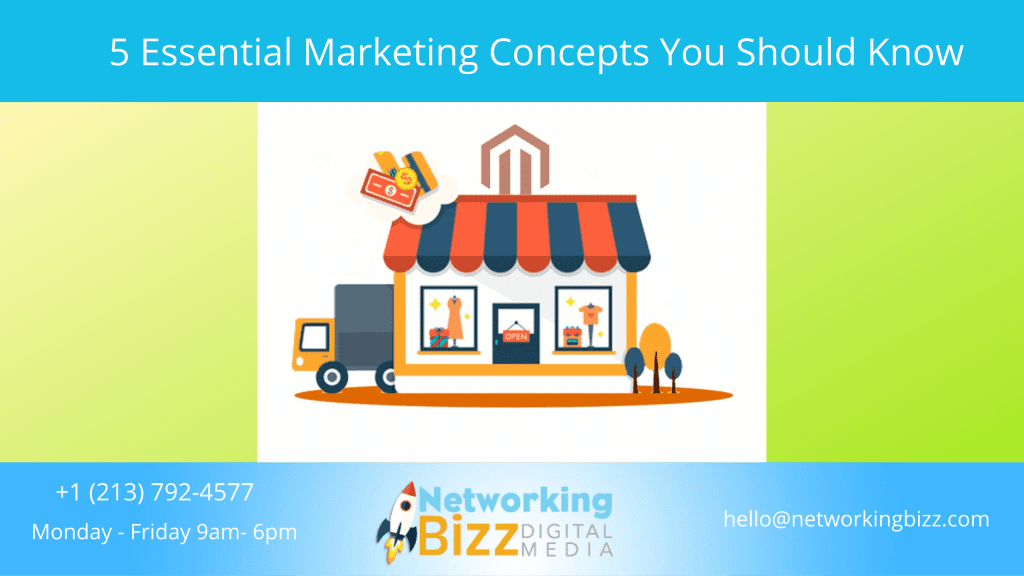
In marketing, businesses will design strategies that satisfy customers’ needs, increase sales, maximize profit and beat their competition. That is a nice truth and statement, but many might ask, “what philosophy is the best for a company in setting marketing strategies?”
Well, in this article we will discuss 5 different concepts of marketing that each have a specific function in a holistic marketing strategy.
The Production Concept
 The production concept is the most operations-oriented than any of the other marketing concepts on this list. It speaks to the human truth that we prefer products that are easily available and inexpensive.
The production concept is the most operations-oriented than any of the other marketing concepts on this list. It speaks to the human truth that we prefer products that are easily available and inexpensive.
The basic idea of this concept is that businesses will want to produce widely cheap products in maximum volumes to maximize profitability and scale. Businesses assume that consumers are primarily interested in product availability and low prices while customer’s needs might not be fully addressed.
Such an approach is probably most effective when a business operates in very high growth markets or where the potential for economies of scale is significant.
The Product Concept
 The product concept is not so much about the production and business output but focuses more on the customer. Potential customers favor products that offer quality, performance, or innovative features. This marketing concept believes in potential customers and how their brand loyalty is closely tied to options of products, the quality of those products and the benefits they get from the product and the business they invest in.
The product concept is not so much about the production and business output but focuses more on the customer. Potential customers favor products that offer quality, performance, or innovative features. This marketing concept believes in potential customers and how their brand loyalty is closely tied to options of products, the quality of those products and the benefits they get from the product and the business they invest in.
This is seen most commonly with our obsession with Apple products and looking forward to their new gadgets and features upon launch!
In this marketing concept, businesses will concentrate on making superior products and improving them over time. The problem is many businesses do not balance the need for a product all while realizing what the marketing needs. There is a fine line between focusing on the customer and still defining your role and leadership in the industry.
The Selling Concept
 The selling concept is the bread and butter of marketing efforts as it believes that people will not buy enough of a business’s product so businesses need to persuade them to do so.
The selling concept is the bread and butter of marketing efforts as it believes that people will not buy enough of a business’s product so businesses need to persuade them to do so.
This concept puts a lot of power into the hands of a business who has a whole plan to effectively stimulate more buying with its potential customers. A lot of the time we also see this action used when a business has to deal with overcapacity and needing to sell what they make rather than what the market needs or wants.
The Marketing Concept
The marketing concept is the concept of competition. It is a marketing concept that believes that the success of a business depends on the marketing efforts that deliver a better value proposition than its competitors.
This concept focuses on the needs and wants of target marketing as well as delivering value better than its competition. Through marketing, it’s your goal to be the preferred option compared to your competitors. Competitive advantage is key!
The Societal Marketing Concept
 The societal marketing concept is the most progressive and modern-day applicable marketing mindset to have. It is a marketing concept that believes in giving back to society by producing better products that help the world be a better place.
The societal marketing concept is the most progressive and modern-day applicable marketing mindset to have. It is a marketing concept that believes in giving back to society by producing better products that help the world be a better place.
This orientation arose as some questioned whether marketing and businesses are addressing the massive problems society has like environmental deterioration, resource shortages, population growth, poverty, and social disruption.
Conclusion
All of these marketing concept mindsets can help you achieve organizational goals depending on if you understand the needs and wants of your target market while delivering quality products people prefer.
Under the marketing concept, customer focus and value are the routes to achieve sales and profits.
The marketing concept is a customer-centered “sense and responds” philosophy. The job is not to find the right customers for your product but to find the right products for your customers.
